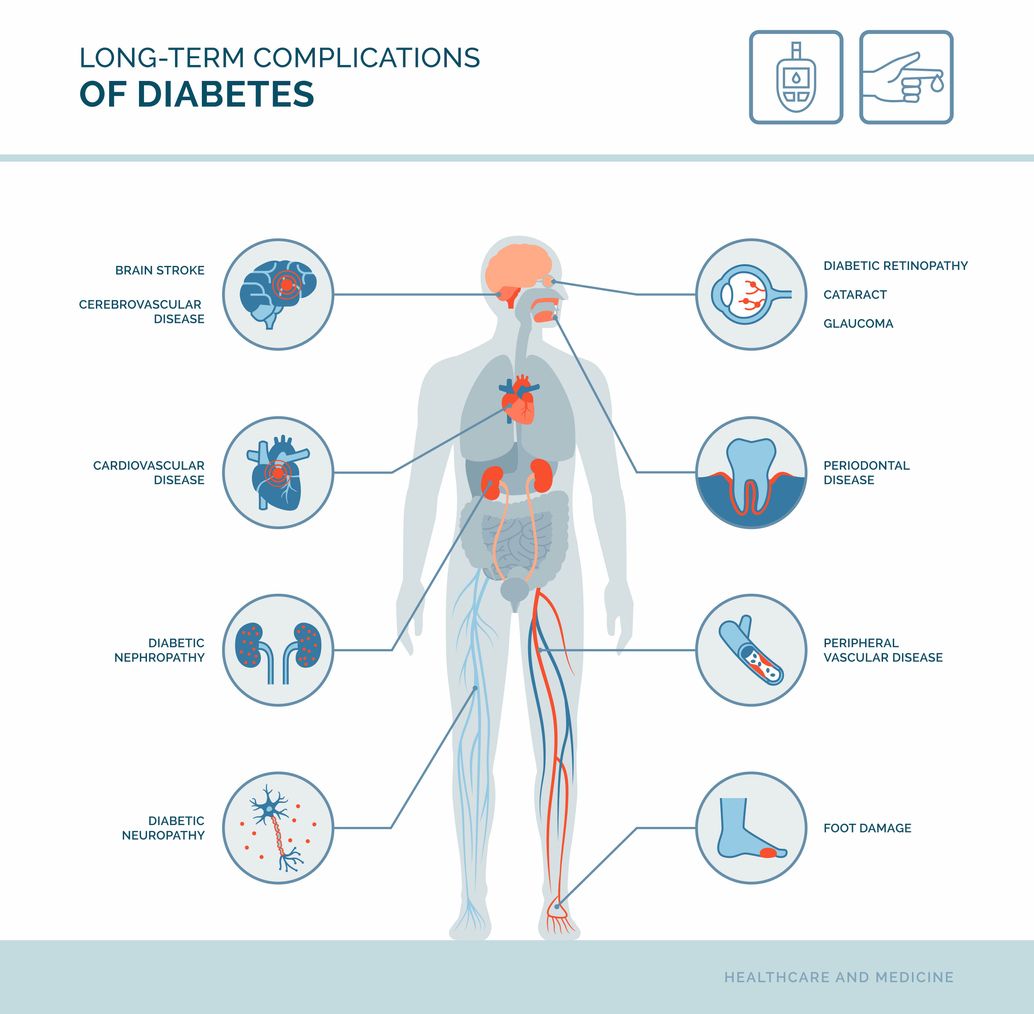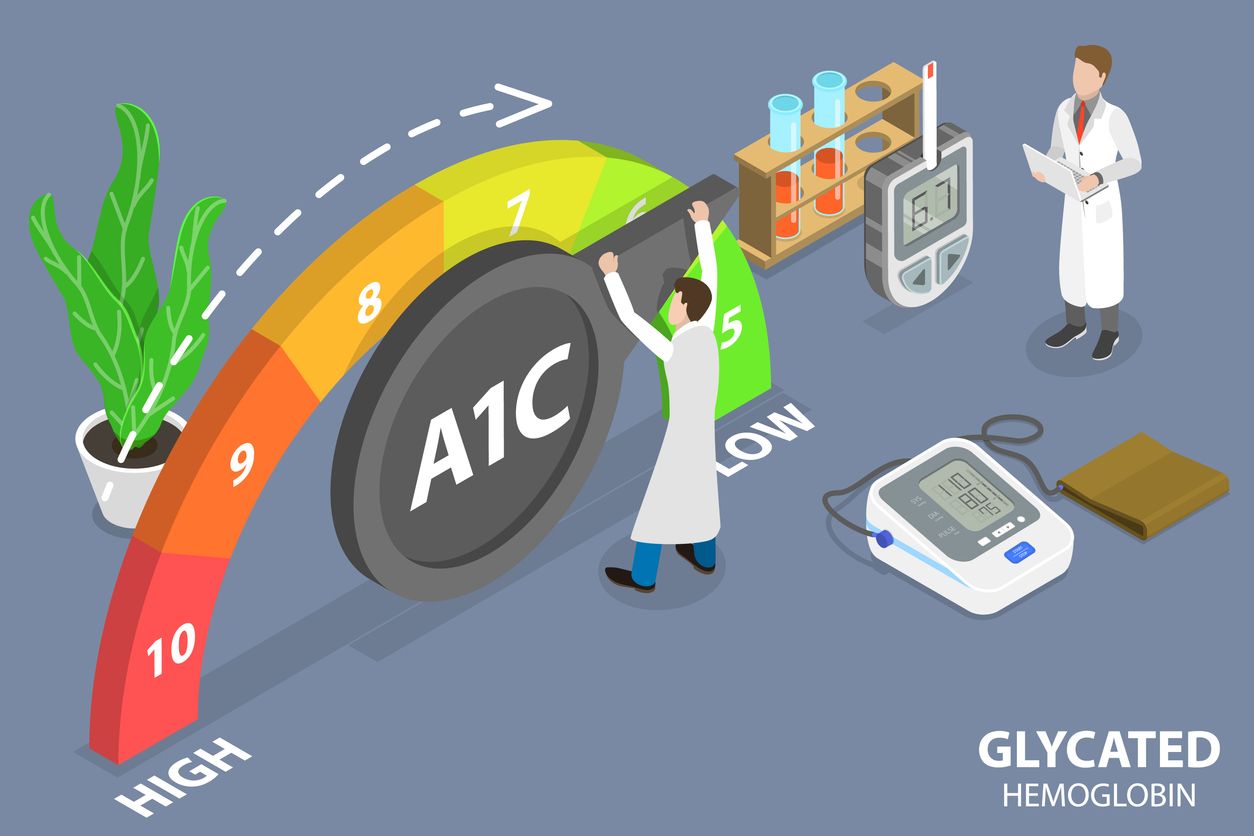Type 2 diabetes and life expectancy

In the last 15 years, the number of people diagnosed with diabetes has doubled. In fact, an analysis by Diabetes UK suggests that a whopping 4.9 million people currently live with this condition [1]. Whatsmore is that 90% of these cases are type 2 diabetes [1].
What is type 2 diabetes?
A diagnosis of type 2 diabetes means that your body struggles to maintain safe and healthy levels of glucose (sugar) in the blood.
Usually, an organ called the pancreas is responsible for making a hormone called insulin. Insulin’s job is to help the glucose from our blood move into our cells, where it can then be used to provide us with energy. Alternatively, surplus glucose can be stored in the liver and muscles as an energy reserve. In type 2 diabetes, the insulin made by the pancreas doesn’t work properly as the cells have become resistant to its effects. In response, the pancreas may begin to work overtime to make more insulin, hoping to compensate for its poor effect. Eventually, the pancreas becomes overworked and insulin production drops off. This means that the glucose level in the blood continues to rise as it cannot move into cells.
Having elevated levels of blood glucose, also known as hyperglycaemia, can result in a number of signs and symptoms. This may include:
- An increased need to urinate (especially at night)
- Feeling tired
- Unexplained weight loss
- Wounds taking longer than normal to heal
- Tingling sensations in the hands and feet
- Blurred vision
- Heightened thirst
- Genital itching or thrush

The impact on life expectancy
If left untreated, high levels of glucose in the blood can lead to many serious downstream effects, termed diabetes complications. For instance, those with type 2 diabetes may experience significant damage to certain parts of the body such as the eyes, feet and heart. You may hear healthcare providers talk about these complications as either chronic or acute. Chronic typically refers to more serious complications that accumulate over time, while acute are those that can occur at any point and may contribute to the development of chronic complications.
Examples of chronic complications may be:
- Diabetic retinopathy (impacting eyesight)
- Foot problems that can result in amputation
- Heart attack or stroke
- Diabetic nephropathy (kidney disease)
- Diabetic neuropathy (nerve damage)
- Gum disease
- Certain cancers
- Sexual problems in women (thrush, urinary tract infections and fertility)
- Sexual problems in men (erectile dysfunction or impotence)
Examples of acute complications may be:
- Hypoglycaemia (low blood glucose levels)
- Hyperglycaemia (high blood glucose levels)
- Hyperosmolar hyperglycaemic state (a life-threatening condition resulting from extreme dehydration and very high blood glucose levels)
- Diabetic ketoacidosis (a life-threatening condition due to the build-up of ketones)

Due to the complexity of type 2 diabetes and its related complications, those living with it may note a poorer quality of life and a shorter life expectancy than those without it. Diabetes UK actually reported that type 2 diabetes may shorten lives by up to 10 years, with the most common cause of premature death being cardiovascular disease [2,3]. However, it is thought that individuals with type 2 diabetes may still benefit from a longer life expectancy than those with type 1 diabetes [2].
While the effects of type 2 diabetes can be severe, research indicates that there are certain factors that may improve your life expectancy. This may include having a lower body mass index (BMI), reducing your blood pressure, managing your blood cholesterol and reducing your HbA1c (a long-term measure of your blood glucose levels). By addressing these factors, the Centre for Disease Control states that you may be able to extend life expectancy by as much as 5 or even 10 years [4]. Therefore, with the right treatment and support, you can indeed live well with type 2 diabetes and reduce your risk of such long-term complications.

Treating type 2 diabetes
Improving our lifestyle, including our diet, exercise, stress and sleep, is usually the first port of call when managing type 2 diabetes. You may also be interested to know that those who engage with lifestyle advice have been shown to have longer life expectancies than those who don’t, emphasizing the importance of seeking support and prioritising self-management. However, it should be noted that, in some circumstances, medications may be necessary. This can include insulin injections, metformin or other medication to help manage body weight, heart health and appetite. Others may also benefit from weight loss surgery.
Below you can see a summary of the lifestyle strategies that can help you manage your type 2 diabetes and improve your life expectancy:
- Eating a healthy diet based on real whole foods (fruits, vegetables, legumes, nuts, seeds, wholegrains)
- Focusing on heart-healthy fats (oily fish, olive oil, avocado)
- Being mindful of your carbohydrate intake
- Meeting the minimum exercise recommendations (150 minutes of moderate-intense activity per week)
- Trying to maintain a healthy weight
- Using strategies to try and manage your stress (social connection, yoga, meditation, nature)
- Quitting smoking
- Being mindful of your alcohol intake
- Checking your blood glucose levels and knowing healthy ranges
- Attending your diabetes health checks
- Adhering to any medications or treatment plans from your healthcare provider

While all of these factors are important to improve our health, diet is often the most talked about with respect to our weight and blood glucose levels. While you may have heard of many different dietary approaches for this, one that is backed by evidence and supported by the NHS is the low-carb approach. If you would like to know more about how this may support you in improving your health and life expectancy then click here for more information. This lifestyle approach can even put their type 2 diabetes into remission for some people!
Will having diabetes affect my life insurance?
You might be worried that you will not be able to take out a life insurance policy because of your condition.
We can provide support in finding the right life insurance policy for you. With over two decades of experience, our diabetes life insurance experts will compare insurance from the UK’s top providers, matching you with an insurance policy that meets your needs.
Click here for a free diabetic life insurance quote or more information about life insurance and diabetes.

Where can I find support?
Whether you’re newly diagnosed, have questions and would like support, or have lived with diabetes for many years and want to talk to other members of the community, the forum is the perfect place to get started.








